SUMMARY
This is AI generated summarization, which may have errors. For context, always refer to the full article.
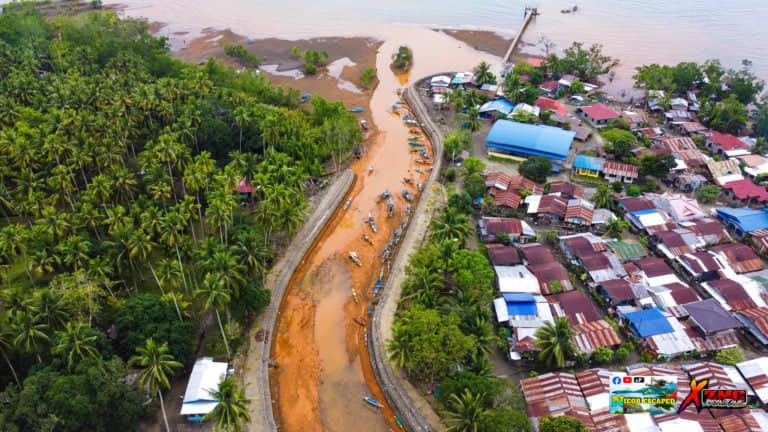
Last of 2 parts
READ: Part 1 | Big miners bullish on Mindanao as they see ‘friendly’ Marcos administration
CAGAYAN DE ORO, Philippines – San Miguel Corporation (SMC) president Ramon Ang and his giant conglomerate’s mining interests are not limited to South Cotabato in the Soccsksargen Region.
In the easternmost part of Mindanao, Ang’s group is reviving a large-scale mining project, the Nonoc Nickel Mines, in a group of islands in Surigao City and the Dinagat province – areas that were devastated by Typhoon Odette (Rai) on December 16, 2021.
Pacific Nickel Philippines Incorporated and Clariden Holdings Incorporated have sought the green light from local officials to start mining operations and establish processing plants.
Pacific Nickel, which has former environment secretary Horacio Ramos as president, is a subsidiary of Clariden Holdings Incorporated, a company chaired by Ang.
Ramos, a former director of the Mines and Geosciences Bureau (MGB), served as environment secretary during the Arroyo administration. He is a mining consultant at Ang’s SMC.
Pacific Nickel holds a 1997 MPSA that covers some 25,000 hectares, stretching from Surigao City’s Nonoc, Awasan, and Hanigad islands, and a part of the neighboring province of the Dinagat Islands.
Three years ago, Pacific Nickel assigned its MPSA to Prima Lumina Gold Mining Corporation and VIL Mines Incorporated.
The Mining Tenements Statistics Report for August 2021 of the Mines and Geosciences Bureau (MGB) Regional Office III identified Ramos as Prima Lumina’s president, while his counterpart in VIL Mines is Ricardo Yabut. The two companies have both engaged in the extraction of marine sand, aggregates, and other minerals in Bataan.
On November 6, 2019, the MGB approved the assignment of areas covered by the MPSA in Surigao and Dinagat to Pima Lumina and VIL Mines – four years after Pacific Nickel executed deeds of partial assignment in favor of the two companies on September 21, 2015.
Surigao City Mayor Pablo Yves Dumlao II sent the city council an “urgent request” on July 28 to officially endorse the planned reopening of Nonoc Mines, a document required before the companies could resume the multi-million-dollar project that was stalled for years due to litigation over debt and tax issues.
Dumlao said the city would benefit much from the project in terms of job generation.
A decade ago, nearly 1,500 people worked in a mining area that covered 1,400 hectares in Surigao City, a far cry from the labor force that would be needed if the project in the 25,000-hectare Nonoc mining concession area goes full blast.
“I see no reason why the LGU (local government unit) will not favorably endorse the said application,” Dumlao said.
The project’s former operator, Philnico Industrial Corporation, owed the national government nearly $264 million and the Surigao City government some P200 million in unpaid real property taxes.
In 2013, the Ang-led San Miguel had offered to invest $2.5 billion to reopen the Nonoc mine’s mothballed refinery plant and finance the expansion of the Surigao airport to offset Philnico’s local tax debts.
Idle for years
The national government held Philnico’s assets in 2011 over the firm’s failure to pay up.
Before Philnico, the project belonged to the Nonoc Mining and Industrial Corporation, a firm that was turned over to the now-defunct Asset Privatization Trust (APT) by the Philippine National Bank (PNB) and Development Bank of the Philippines (DBP). The banks acquired it through foreclosure proceedings in 1984, two years before the EDSA Revolution.
The APT was the precursor of the Privatization and Management Office (PMO) – under the Department of Finance (DOF) – which serves as a marketing arm of the government for transferred assets, government corporations, and other properties assigned to it for sale.
Philnico agreed in 1996 to buy about 90% or 22.5 million of the Nonoc Mining shares of stock for $333.7 million. But the company later defaulted on the agreed installment payments, starting a long drawn-out legal battle that reached the Supreme Court (SC).
Clariden Holdings bought Philnico in 2013. Philnico’s 2018 general information sheet showed Ramos as its president and Ang as its chairman – the same top executives of Pacific Nickel and Clariden Holdings.
The SC dismissed the petition for certiorari filed by the PMO in favor of the mining companies on September 14, 2021.
On March 4, 2022, the Department of Environment and Natural Resources (DENR) extended the MPSAs to August 7, 2031.
Zamboanga Peninsula, BARMM
Across Mindanao, large-scale miners have also sought the green light of local governments for their plans to pursue their mining projects.
Senate Minority Leader Aquilino “Koko” Pimentel III said he has been receiving reports about a pattern of mining operations mushrooming even in the Zamboanga Peninsula, and as far as Tawi-Tawi in the Bangsamoro Autonomous Region in Muslim Mindanao (BARMM).
The reason for this is because of the industrialization thrust of the Marcos administration that gave the country’s mining industry a big boost, said Dr. Arvin Carlom, the manager of Davao Oriental’s Asiaticus Management Corporation (AMCOR).
The mining industry slowed down at the start of the Duterte administration because of restrictions imposed by then-environment secretary Gina Lopez.
In 2017, Lopez ordered Carlom’s company shut down for breaking environmental laws, but it resumed operations again in 2019.
In July, just days after Marcos came to power, AMCOR announced it would pursue its $2-billion mining project in Davao Oriental that was stalled by a legal battle over the cancellation of its partnership agreement with Australia-based BHP Group Limited (formerly BHP Billiton).
AMCOR is a consortium of the Austral-Asia Link Mining Corporation and Hallmark Mining Corporation, that was granted a 17,000-hectare concession area in Davao Oriental.
Following an out-of-court settlement, the consortium announced it would proceed with its $2-billion Pujada Bay mining project, and started negotiations for a possible partnership with a new foreign partner. (Editor’s note: Pending verification, we are not specifying how much was actually involved in the settlement.)
Davao Oriental
Large-scale miners have sought the green light of local governments for their plans to pursue their mining projects in different areas in Mindanao.
The mining companies have been encouraged to go full blast due to the new administration’s new policy direction which is seen as mining-friendly, said Carlom.
AMCOR, Carlom’s group, wants to build a state-of-the-art nickel processing plant in Mati City, the capital of Davao Oriental, as part of plans to pursue its stalled $2-billion project.
But the local Catholic diocese has started drumming up support for its anti-mining advocacy, launching a signature campaign against mining operations and using pulpits to preach about its adverse effects on the environment.
Father Alfe Alimbon, a chancellor of the Mati Catholic Diocese, alleged on July 28 that Mati Bishop Abel Apigo turned down an AMCOR executive’s offer for a donation that priests saw as a bribe.
Carlom, however, said AMCOR has been a consistent “big donor” of the diocese under the watch of the late Mati bishop Patricio Alo and planned to continue doing the same thing under Mati’s new bishop. For instance, he said, a parish church was constructed there using AMCOR’s donation.
Banaybanay mining accident
Davao Oriental Governor Corazon Malanyaon gave a group of mining firm executives the cold shoulder when they paid her a visit at the capitol in July, and told them that mining “is not a priority” in her development agenda for the province.
Malanyaon has ordered a provincewide crackdown on illegal mining and created a task force led by a former general to strictly enforce mining rules and environmental laws.
She cited a mining accident in the town of Banaybanay in January that destroyed a major rice granary. The accident, which caused heavy siltation at the Mapagba and Pintatagan rivers in Banaybanay town, involved the mining firm Riverbend Consolidated Mining Corporation-Arc Nickel Resources.
The Department of Environment and Natural Resources (DENR) slapped the company with a cease-and-desist order, but the government allowed it to operate again after it reportedly spent more than P100 million to rehabilitate its mining concession area.
The Davao Oriental provincial government has counted at least nine companies that were allowed by the environment department to engage in large-scale mining operations in the province through Mineral Production Sharing Agreements (MPSAs).
An MPSA is an agreement that entitles the government to draw shares from a mining company’s products in exchange for a right to extract mineral resources from a specified area.
Worth it?
Environmentalists said they were uncomfortable with the Marcos administration’s perceived friendliness to big miners, and they were worried that the government would sacrifice the environment in the name of development.
Rene Pamplona, an environmental activist and indigenous peoples’ rights activist in South Cotabato, said the revenues the government would generate out of the large-scale mining operations would be a drop in the bucket compared to the damage they would cause to the environment.
Pamplona cited the case of South Cotabato where he said the government would only get a 4% share of the revenues that the Tampakan project would generate, “less the tax holidays, tax credit, and tax incentives.”
He said the Tampakan project would adversely affect rice fields and farmers, who contribute some P1.3 billion annually to the economy of South Cotabato.
The Koronadal Valley area alone has an annual rice yield of nearly 1.5 million sacks or about 73 million kilograms of rice, he said.
Pamplona estimated that more than 7,500 hectares of irrigated rice land would be damaged, and 4,927 rice farmers would be displaced as a result.
Aside from that, he said the mining project also poses a great risk to the province’s watersheds.
“Our decision-makers need to weigh the consequences of their actions, and they need to ask if destroying our environment in exchange for more jobs and revenues is worth it. Is it really worth it?” he asked. – Rappler.com
Add a comment
How does this make you feel?








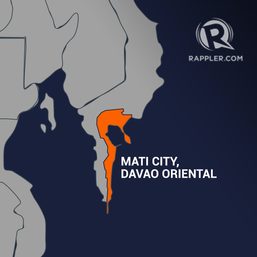
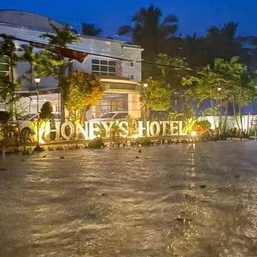



![[Pastilan] The Great Philippine Identity Sale](https://www.rappler.com/tachyon/2024/07/great-philippine-identity-sale-july-16-2024.jpg?resize=257%2C257&crop=486px%2C0px%2C1080px%2C1080px)





![[In This Economy] Marcos’ POGO ban is popular, but will it work?](https://www.rappler.com/tachyon/2024/07/thought-leaders-marcos-pogo-ban.jpg?resize=257%2C257&crop=255px%2C0px%2C720px%2C720px)
![[Rappler Investigates] POGOs no-go as Typhoon Carina exits](https://www.rappler.com/tachyon/2024/07/newsletter-graphics-carina-pogo.jpg?resize=257%2C257&crop=424px%2C0px%2C1080px%2C1080px)










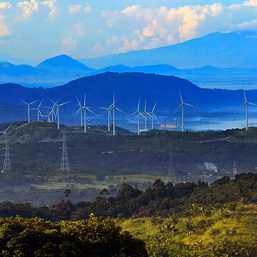








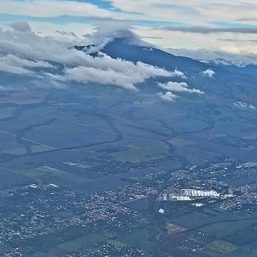
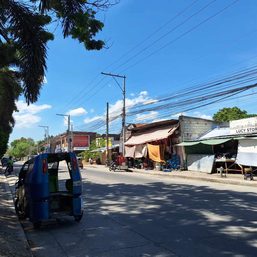




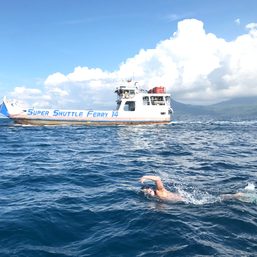
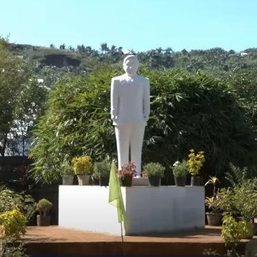




There are no comments yet. Add your comment to start the conversation.